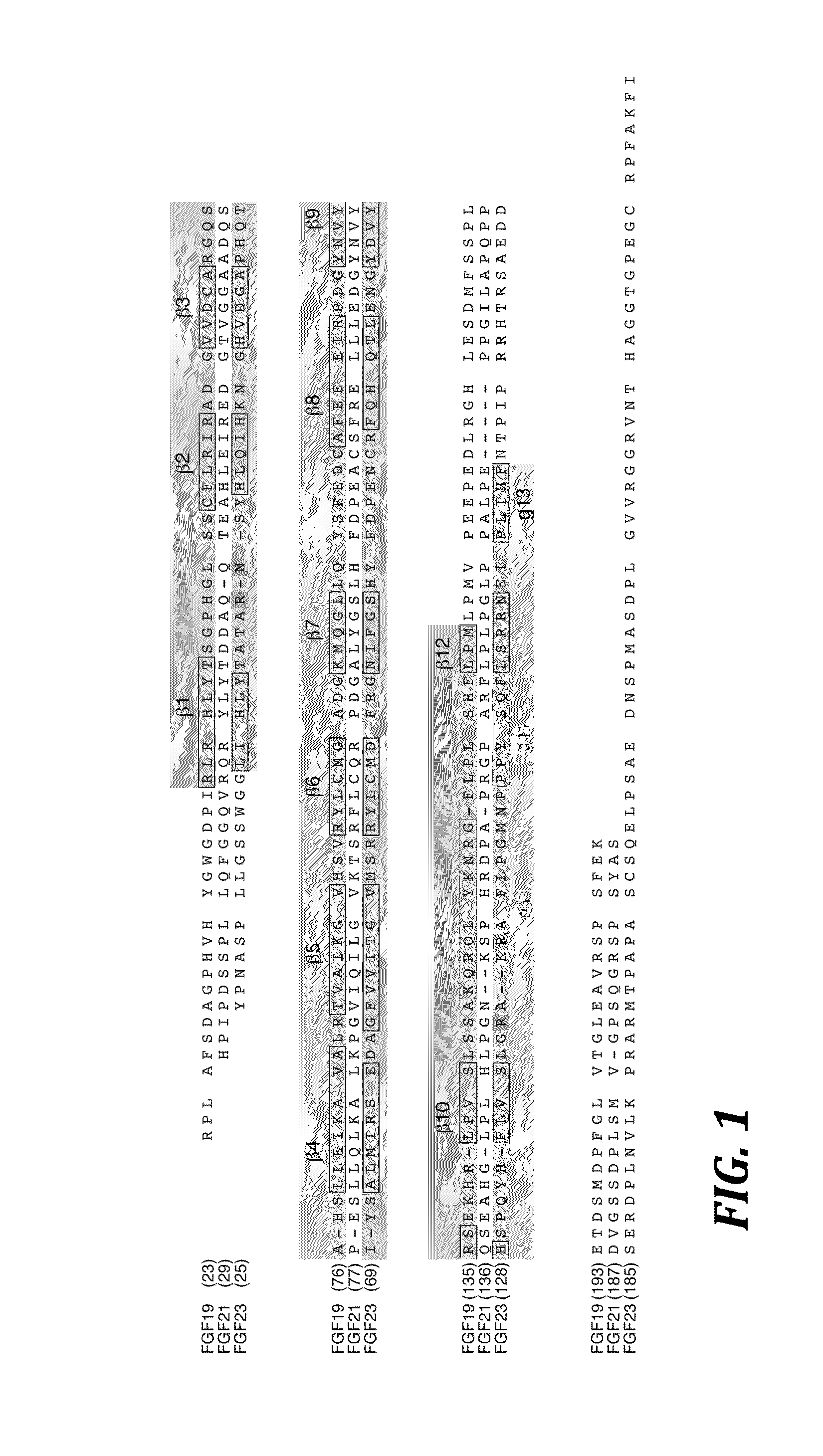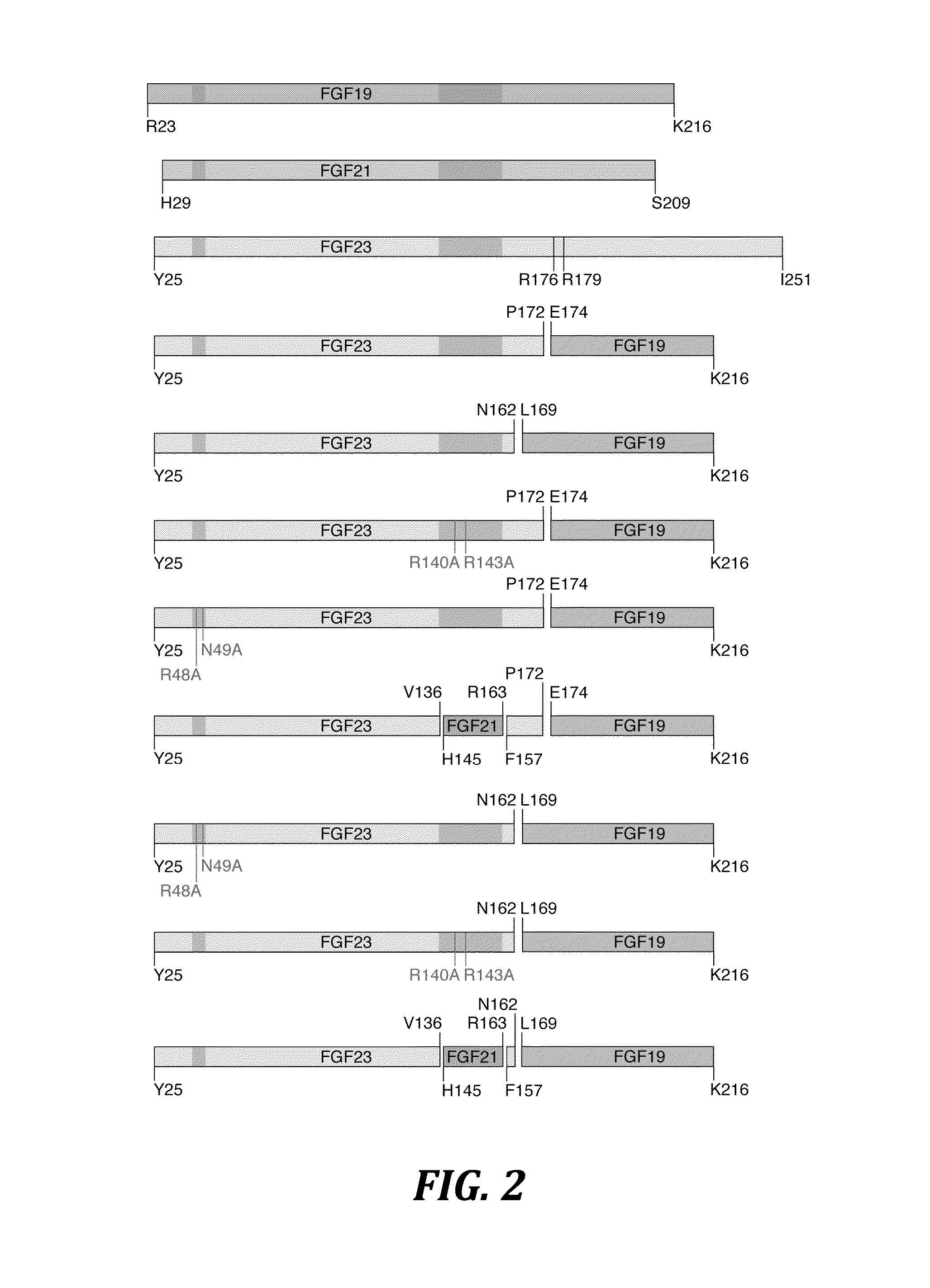Chimeric fibroblast growth factor 23 proteins and methods of use
a growth factor and fibroblast technology, applied in the field of chimeric fibroblast growth factor, can solve the problems of limited efficacy, limited tolerability, and extensive irreversible damage to multiple organs, and achieve the effects of increasing the number of patients
- Summary
- Abstract
- Description
- Claims
- Application Information
AI Technical Summary
Benefits of technology
Problems solved by technology
Method used
Image
Examples
example 1
Generation of an Expression Construct for a Chimeric FGF23 Protein
[0100]To make the expression constructs for the chimeric FGF23 proteins of the present invention (see FIG. 2), a method of gene splicing by overlap extension polymerase chain reaction was employed (Horton et al., Gene 77:61-68 (1989), which is hereby incorporated by reference in its entirety). Specifically, the FGF23Y25-P172-FGF19E174-K216 chimera (SEQ ID NO: 254) was generated as follows: the sequence of the human FGF23 gene encoding residues 25 to 172 was amplified by polymerase chain reaction (PCR) using a 3′ primer with an extension by 18 nucleotides that encode residues 174 to 179 of human FGF19. In a separate PCR reaction, the sequence of the human FGF19 gene encoding residues 174 to 216 was amplified using a 5′ primer with an extension by 18 nucleotides that encode residues 167 to 172 of human FGF23. Thus, DNA fragments encoding the components of the chimeric FGF23 protein were generated, each containing a smal...
PUM
 Login to View More
Login to View More Abstract
Description
Claims
Application Information
 Login to View More
Login to View More - R&D
- Intellectual Property
- Life Sciences
- Materials
- Tech Scout
- Unparalleled Data Quality
- Higher Quality Content
- 60% Fewer Hallucinations
Browse by: Latest US Patents, China's latest patents, Technical Efficacy Thesaurus, Application Domain, Technology Topic, Popular Technical Reports.
© 2025 PatSnap. All rights reserved.Legal|Privacy policy|Modern Slavery Act Transparency Statement|Sitemap|About US| Contact US: help@patsnap.com



